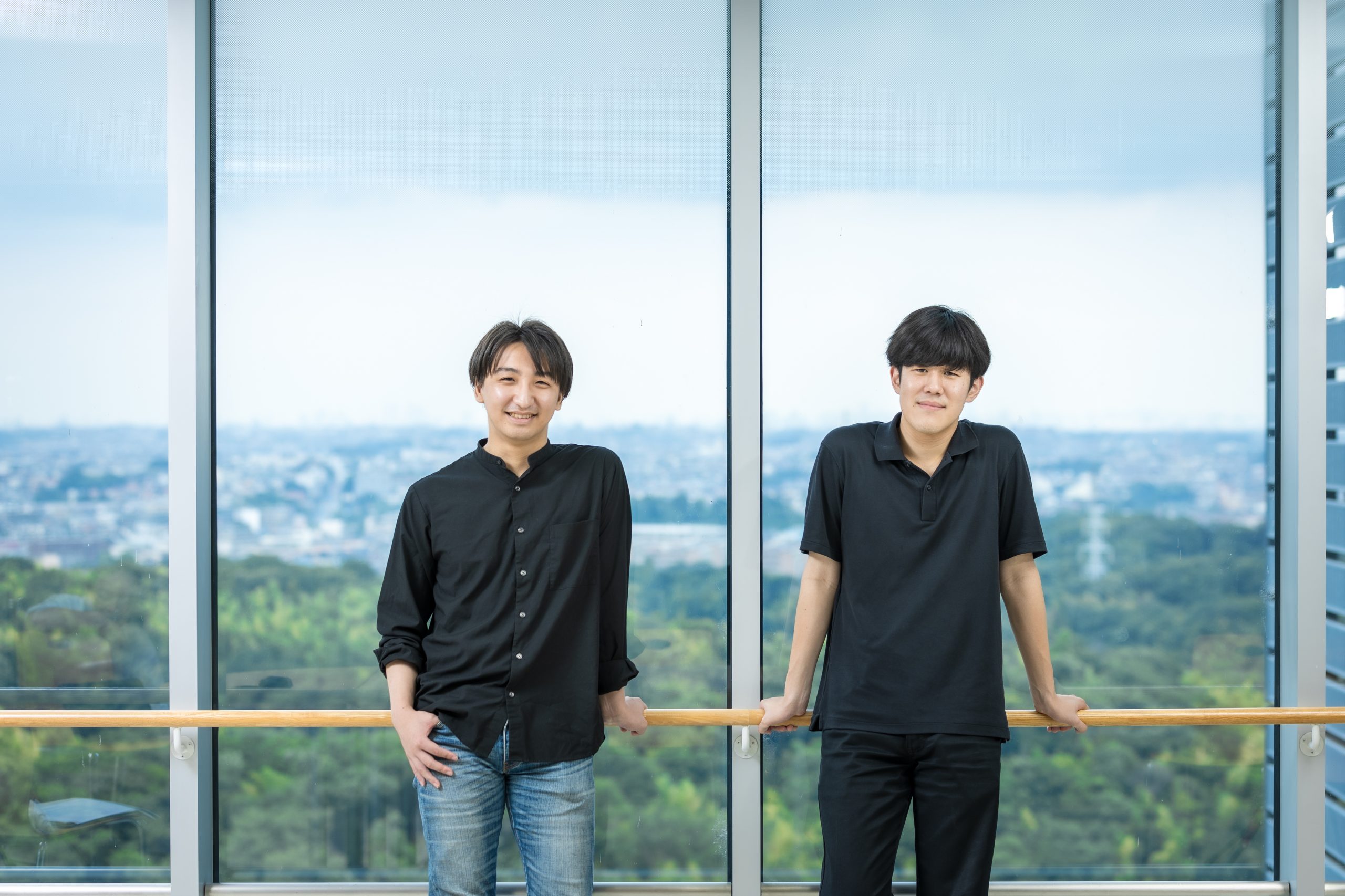Teaching is like organizing and spitting out a messy store of knowledge
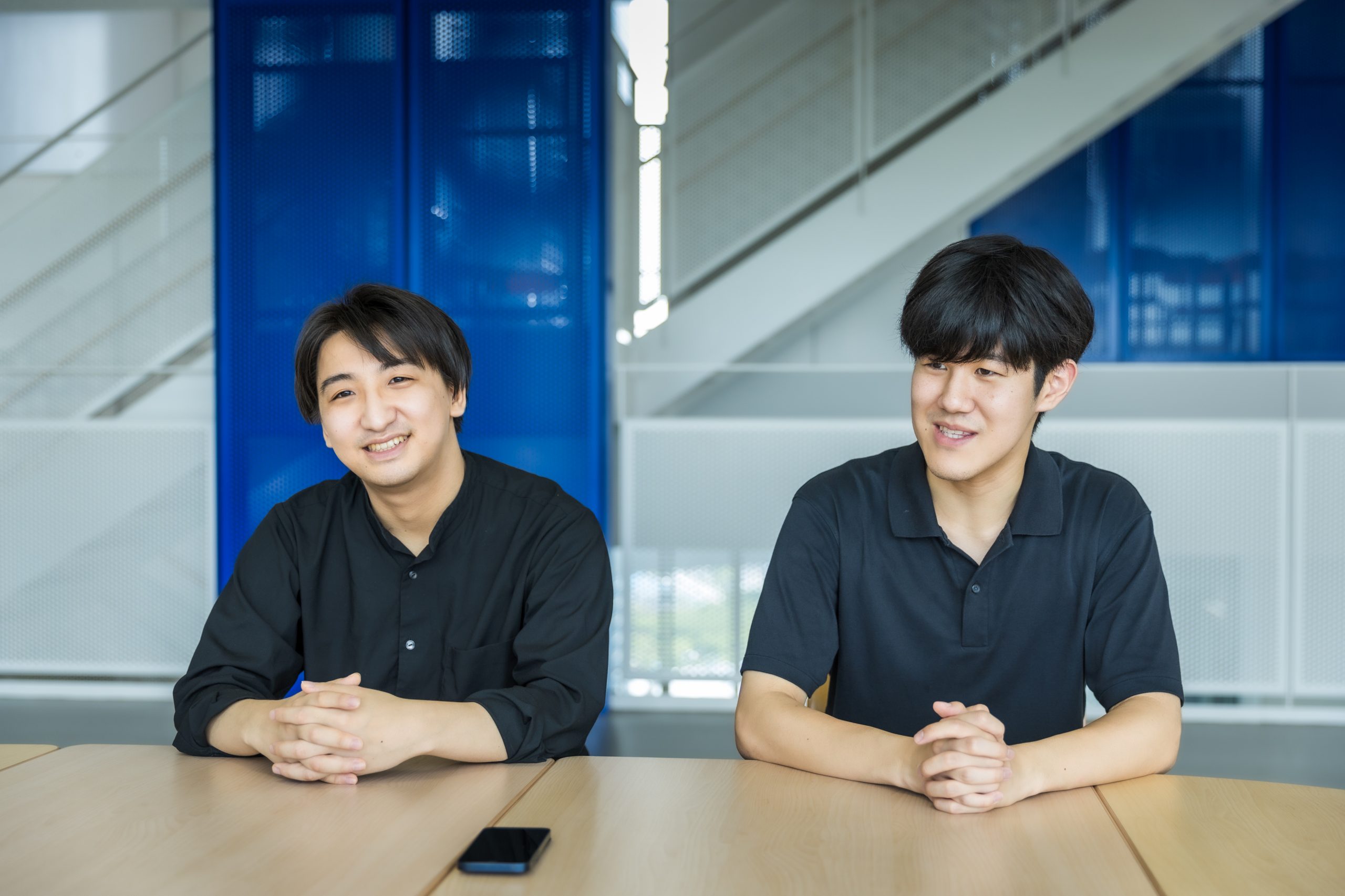
Can you tell us what you did in the classes you participated in as a TA?
Matsuno (left-side) As a TA, I was in charge of “Fundamentals of Data Science” and “Exercises in Fundamentals of Data Science.” Students will learn the fundamentals of data analysis, such as clustering and principal component analysis. In the “Fundamentals of Data Science” course, emphasis is placed on data analysis methods. In the lectures, students learn how the methods are mathematically processed. In the exercises, they can learn how to run and use these methods using Python, a programming language that is said to be easy to understand even for beginners. Although many students attending the lecture were graduate students, participation was widespread across all the academic fields. It was intended to acquaint those who are not familiar with computer science with the basics of computer science.
Yashiro (right-side) I was a TA for the “Exercises in Fundamentals of Artificial Intelligence” and I was in charge of answering questions from the students during the Exercise. It was an online exercise that covered simple operations with NumPy (one of Python’s libraries) to the convolutional neural network (CNN), which is a bit of a difficult category among the various methods in this field. I answered questions online for students who had questions about their knowledge of the session, including Python programming. The main role is to support those who cannot keep up with the lectures.
Can you talk a little bit about what you liked about being a TA and what you learned or noticed?
Matsuno The first thing I noticed was that so many students want to study data science. In the exercise class I was in charge of, about 120 students participated. Even though there were several other data science lectures during the same period. I was surprised by the sheer number of students, with more than 120 taking one class. We go over the class content in advance of each class, and since I do not use all of my knowledge on a daily basis, it was great to relearn the parts that were unclear to me.
Yashiro The course was offered in English, so at first, I felt pressure to speak a language I was not accustomed to using in my daily life. I thought there would be many international students who would all be fluent in English. However, I have realized that some people are not as proficient as I thought and I can do it if I work hard. Also, being on the teaching side means that I have to organize my mind and spit out the knowledge I have studied and accumulated. I could organize my thoughts when I had to talk about things that were messed up in an orderly fashion. A good salary also led to motivation. I was delighted that our knowledge was recognized that much.
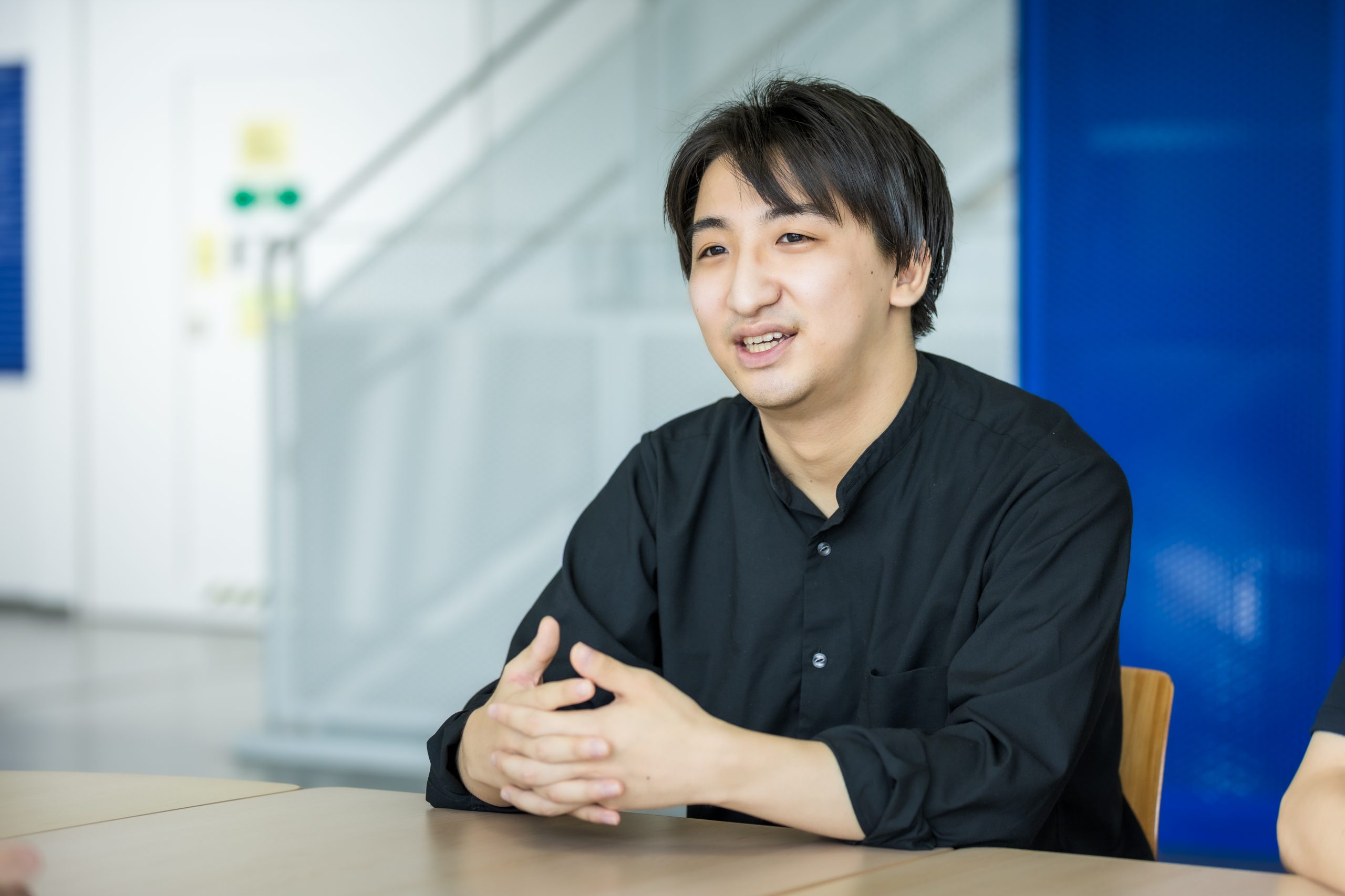
I hope you will carry on without running away from the English course because it can be managed.
What would you like to work on if you were to become a TA again for the same class subject?
Matsuno I also had to respond to questions, which was quite difficult when they were in English. If I had read the lecture material more properly and thought more deeply about what people would be questioning, I think I could have guessed even if they asked me questions in English. I reflected on the fact that I could not take the perspective of the students attending the lecture.
Yashiro Since I had to answer questions with international students, it was sometimes a little difficult to understand what they were saying. Sometimes, I treated them as if I understood them even though I don’t, and they probably left without being 100% convinced. In such cases, I can learn more and convey my knowledge to others if I tell them straight out, “I don’t understand, so please tell me more about what you want to say.” I want to be a TA who proactively engages with others.
Please tell us what you want to say to students who want to become TAs in the future.
Matsuno I believe we have an important role in teaching the fundamentals of information technology to very talented students who will become professionals in fields other than information technology. I hope they will do this with an awareness that it is the first step toward using information technology responsibly.
Yashiro Since understanding what they have experienced in their head and communicating it to others are entirely different levels of difficulty, I would like them to challenge themselves in a way that will empower them actively. I think there are probably many people at our university who are not good at English, but since they can manage even in English courses, I hope they do not run away from it and try it. Also, if they have experience taking on a large group of people as TAs, they may be surprised at how well they will be responded to in job hunting, etc.
Are you two looking for employment?
Matsuno Yes, I think so. I am still trying to decide which direction to go. I feel like I am lost right now. One direction is to work in data analysis at a data science company that is close to my field of expertise, and the other is to work in web development, or rather, to create web applications. I have internships in both and am trying to decide which one to choose.
Yashiro I have not decided on an industry yet, but I am thinking about how to implement the drug discovery-related research I am doing now in society. I would like to join a company where I can utilize my research. There are a few companies I would like to join.
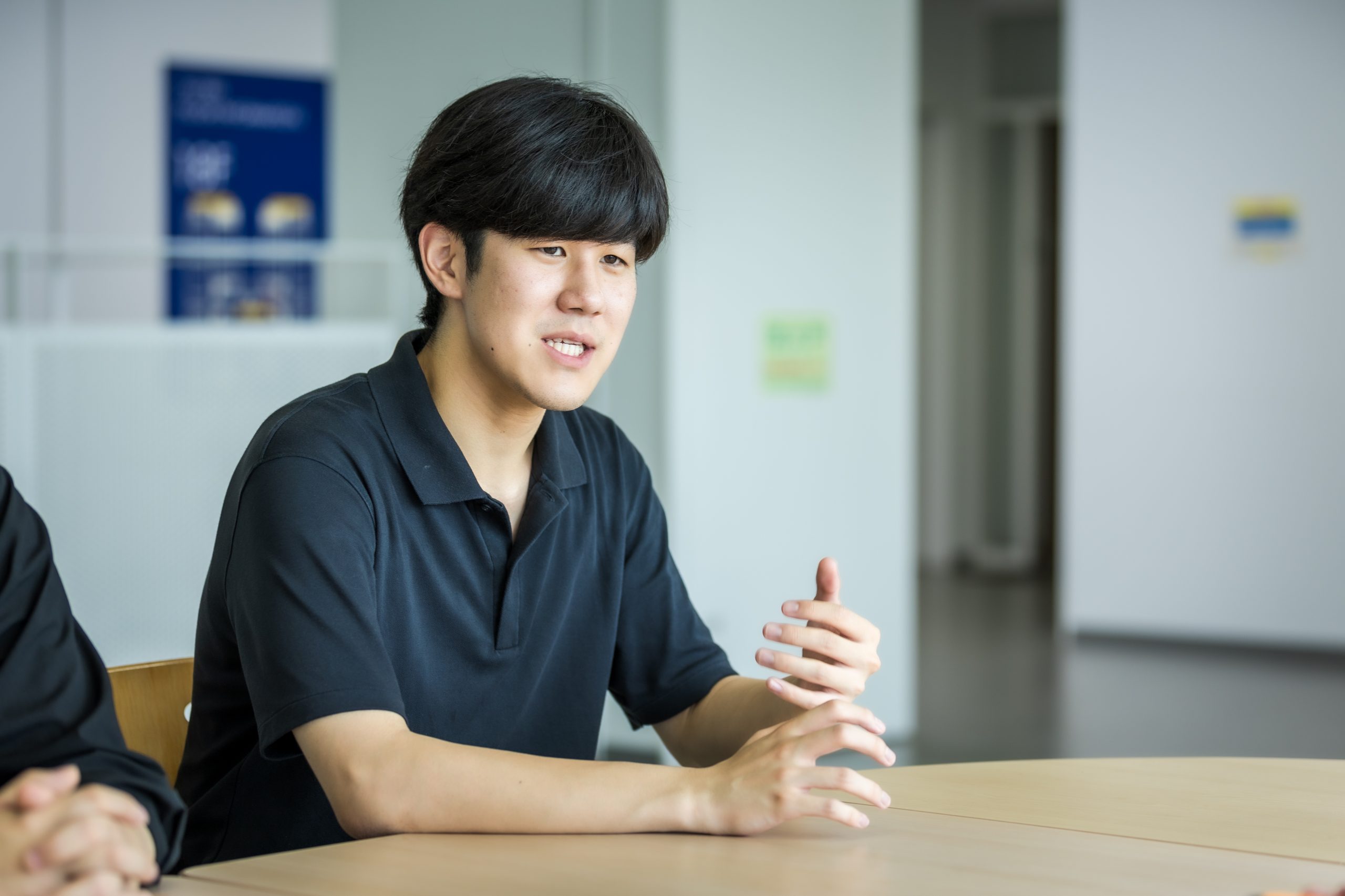
A program that allows us to gain experience teaching is new.
Please tell us a little about your own research field, including its connection to DS&AI.
Matsuno My research field is chemoinformatics, which uses computer science techniques to streamline drug discovery (development of new drugs). We are creating a program for data analysis to support drug discovery using neural networks. DS&AI is essential to interpret how useful the results obtained are. In some of my classes, since I also talk a little bit about neural networks, and I mainly use one type of neural network called a graph neural network in my research, there is a connection in that regard as well.
Yashiro I am also in the same lab, and my current research theme is how to use large-scale language models (LLM), such as ChatGPT, which is a hot topic these days, for drug discovery. Since the results that come out are sometimes things that cannot be understood without looking at the data after all, data science is necessary. And when we look at how large-scale language models work, what their history is, etc., AI (artificial intelligence) is behind them.
Going back to your entrance exam days, why did you decide to pursue computer science?
Yashiro I was quite fond of video games, and VR was a hot topic when it first came out, so I decided to go to the Tokyo Institute of Technology to study computer science to work in VR or human-computer interaction! I still play games just for fun (laughs).
Matsuno When I was in high school, I did not really think deeply about what computer science dealt with. However, since machine learning had become a public trend and computer science was gaining popularity, I decided to enter anyway. It seems that it is difficult to try to get in later, so I honestly thought I would go to a different field if I felt differently after I entered. The fact that game development is also computer and information technology-based was also a boost. Also, I liked mathematics, so there was a strong compatibility between mathematics and computer science, and I am glad for that aspect. More than expected? Hmmm, well, about what I expected.
In closing, what are your expectations and desires for the DS&AI TF program (a system that comprehensively evaluates and certifies your teaching experience as a TA and your expertise in DS&AI)?
Yashiro I think that TA makes us aware that we are “teaching,” and we can try to verbalize and convey our ideas well. I think it would be a good system if by encouraging people to become TAs, more people would have a better understanding of the subject so that they can teach. Although now I have the image that TA is a one-person effort, I think it would be great if TAs could connect with other TAs, and if discussions on how best to teach could become more active, it would create an environment of friendly competition. I think it is essential to have an environment where we can receive feedback from the outside.
Matsuno I think it is very interesting because a program that allows us to gain teaching experience is new and something that we will certainly need in our future career. For example, it would be great if the TAs could explain questions that came up through discussions in student group work and get feedback on them, and so on. We would be happy if this system would actually improve our ability to teach.
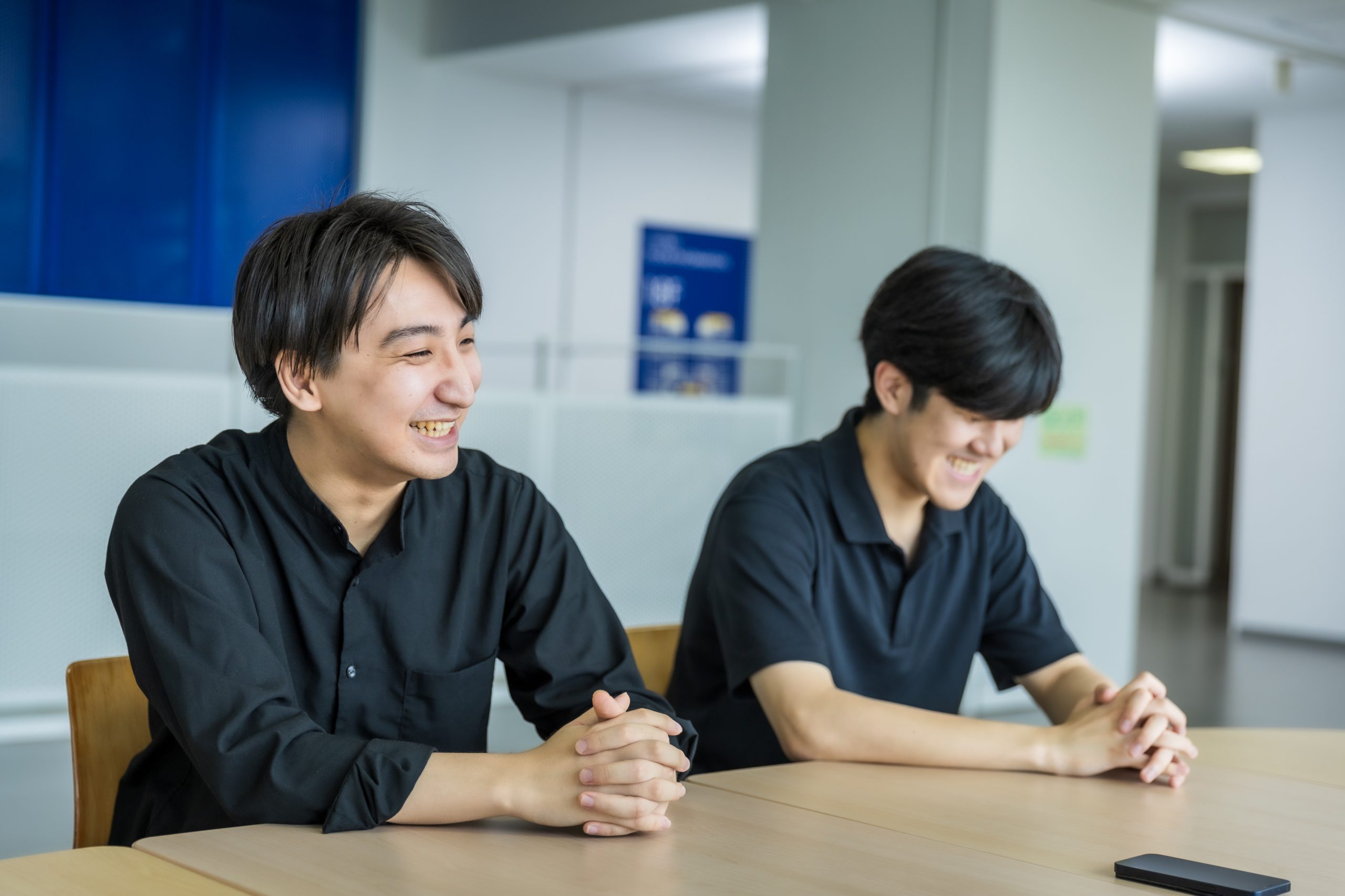
Heavenly Voices
Mr. Yashiro also mentioned the merit of mentioning TA as a “gakuchika” (something we put a lot of effort into when we were a student) in our job search. However, I personally think that the university should give them proper proof of their abilities as an objective point of view, not just their talk. So, the TF development program looks at expertise in addition to experience, and there is a vetting process.
In addition, the exercise class I am in charge of would not be possible without valuable activities of DS&AI personnel like them. Therefore, although the DS&AI TF program is a development program, it is not an educational training program, and they should be paid as TAs in appreciation of their success. At the same time, it would be good for education if we encourage their willingness to take on challenges in the form of salary, and if they themselves grow as a result. (Teacher in charge of Exercises Courses, Dr. Yanagisawa)
